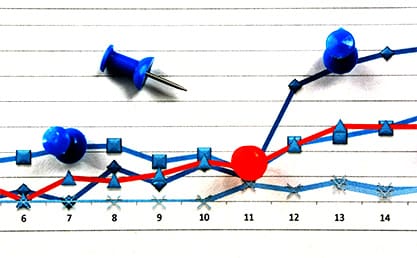Competition Law in Kingdom of Saudi Arabia
1. What is the name of the main regulator/ regulators governing the competition law in Saudi Arabia?
- The Board of the General Authority for Competition (the Board).
- The General Authority for Competition (the GAC).
- The Committee for Adjudication of Competition Law Violations (the Committee).
 2. In the context of a merger acquisition in what circumstances, are the seller and/or the purchaser required to notify the competition regulator?
2. In the context of a merger acquisition in what circumstances, are the seller and/or the purchaser required to notify the competition regulator?
Firms intending to participate in an economic concentration transaction, or their legal representative, will report this to the GAC and submit the required information at least 90 days before completion of the economic concentration if the total annual sales value of all firms intending to participate in the economic concentration exceeds 100,000,000 Riyals.
3. What steps will a competition regulator take if there are potential concerns around a company obtaining a dominant market position following a merger/purchase of a competitor?
- Any natural or corporate person may file a complaint or report anti-competitive practices to the GAC even if they are not an aggrieved party, according to the forms specified for these purposes. The complainant does not have to reveal their identity.
- The GAC may, on its own initiative, take procedures of inquiry, gathering of evidence and investigation in line with the provisions of the Implementing Regulations issued by Saudi Arabia Ministerial Decision No. 337/1441 dated 25/01/1441H of the Competition Law promulgated under Saudi Arabia Royal Decree No. M75/1440 dated 29/06/1440H.
- The GAC may conduct periodic inspections of the markets and request necessary data and information from firms. All firms will submit the data, information, or documents requested for conducting market studies or inquiry and investigation work.
- The GAC will review referrals received from supervisory authorities and regarding anti-competitive behaviours and practices.
- Complaints and reports will be submitted, after preliminary examination, to the Board, including recommendation supported by evidence and indicators, wherever possible, for issuing a decision or providing guidance on it indicating approval to take procedures of inquiry, gathering of evidence and investigation or any of them, or closing the matter, provided the closing of any matter will be reasoned. The GAC may prioritise complaints and reports entailing serious harm or greater impact on competition, in line with criteria approved by the Board.
4. How would a dominant market position be derived in KSA?
Dominance in the relevant market is achieved by meeting one or both of the following criteria:
- A market share of 40% or more of the relevant market, whether it is the share of a single firm or a group of firms, whenever that group acts with a common will in committing the violation or causing the effect.
- Ability to influence a relevant market such as controlling prices, production, or demand, whether it is the ability of a single firm or a group of firms, whenever that group acts with a common will in committing the violation or causing the effect.
5. Is it possible to appeal a decision by the competition regulator- how does this work?
- The Committee's resolutions may be appealed before the competent court within 30 days of the date the violator is notified of the resolution. The Committee decisions become final after 30 days have lapsed and there has been no appeal by the defendant before the competent court as of the date of notification of it or from the date specified for delivering the decision to the parties to the case.
- However, if a party to the proceedings appeals the Committee's decision before the competent court, they will inform the GAC within three working days from the date of appeal, by letter which will contain the Committee's decision number and the date and the number and date of the appeal filed with the competent court and a copy of it. The Committee's decisions concerning imposing fines and the Board's resolutions regarding taking measures will take effect immediately on their issuing and will be enforceable from the date of notification or from the set date of delivery to the parties unless a decision is issued by the competent court to stay their execution. A judgment to annul those decisions will not preclude their effectiveness and immediate enforcement unless the judgment becomes final.
6. How quickly is any decision on a competition risk as a result of a merger/company purchase normally taken in Saudi Arabia?
The Board will issue its decisions concerning an economic concentration, indicating:
- approval;
- conditional approval; and/or
- rejection;
within ninety days from the date of notifying the applicant of the completion of the reporting, in line with the provisions of within ninety days from the date of notifying the applicant of the completion of the reporting, in line with the provisions of the Competition Law (Saudi Arabia Cabinet Decision No. 372/1440) and the Implementing Regulations.
7. What remedies are generally taken when a dominant market position is established which would a merger or acquisition?
 The Board, on a recommendation by a technical committee, may approve the request of the entity to be exempt if it would lead to improved market performance, or improve the performance of entities in terms of the quality of the product or technological development or creative efficiency or both. The benefit of the exemption to the consumer should outweigh the effects of restricting the freedom of competition.
The Board, on a recommendation by a technical committee, may approve the request of the entity to be exempt if it would lead to improved market performance, or improve the performance of entities in terms of the quality of the product or technological development or creative efficiency or both. The benefit of the exemption to the consumer should outweigh the effects of restricting the freedom of competition.
8. What penalties apply for failure to follow competition law in a merger or acquisition in the Kingdom?
- Whoever violates by entering into the prohibited agreements or contracts with the purpose or effect of it to prejudice competition or where an entity having a dominant position in the market exploits this position to undermine or limit competition or entities seeking to participate in an economic concentration transaction have not informed the GAC in line with Saudi Arabia Cabinet Decision No. 372/1440 will be fined up to 10% of the total annual sales value which is the subject of the violation. Where it is impossible to estimate the annual sales, the fine will not exceed 10 million Riyals. The Committee may, on its discretion, impose a fine of up to three times the gains made by the violator resulting from the violation.
- An entity which prevents the law enforcement officer or investigator from performing a task assigned to them under Saudi Arabia Cabinet Decision No. 372/1440 will be punished with a fine not exceeding 5% of the annual sales value. Where it is impossible to estimate the annual sales, the fine will not exceed five million Riyals.
- If the violator repeats the violation, the Committee may double the fine awarded in the first instance. The violator will be considered a repeat offender, if the same violation is committed within three years of the date of the resolution of the first violation.
- Anyone who violates any other provision of Saudi Arabia Cabinet Decision No. 372/1440 will be fined up to two million Riyals.
9. Are there any rules governing the way a company seen as having a dominant market position must sell or market their products - which are the most important ones?
The company seen as having a dominant market position must get approval from the Board to be exempt by proving the company's act would lead to improved market performance, or improve the performance of the entities in terms of the quality of the product or technological development or creative efficiency or both. The benefit of this exemption to the consumer should outweigh the effects of restricting the freedom of competition.
Under Article 6 of Saudi Arabia Cabinet Decision No. 372/1440, establishments with a dominant position in the market must not abuse that position to prejudice or control competition and in particular, cannot:
- Sell goods or services at a price lesser than the total cost, solely to exclude entities from or obstruct the entry of potential entities into the market or to expose the entities to gross losses.
- Determine or impose the sale price or terms of resale of goods or services.
- Decrease or increase the availability of the good in order to control the price or to create a relative shortage or excess in the market.
- Discriminate between establishments of a similar nature with respect to the price of goods or services or the terms of sale or purchase.
- Refrain from dealing with another establishment without an objective reason, in order to prevent it from entering the market.
- Prohibit an establishment from dealing with another establishment.
- Require that the sale of goods or services be conditional on assuming an obligation or accepting a good or service which is, by the nature or commercial application, unrelated to the first-mentioned good or service.
10. What are the penalties for failure to apply competition rules when selling or marketing products?
Anyone who violates any other provision of the Implementing Regulations will be fined up to two million Riyals.
11. Are there any rules which prevent companies from colluding with competitors in the market when setting prices?
Under Article 5 of Saudi Arabia Cabinet Decision No. 372/1440, practices including agreements or contracts between entities, whether written or oral, explicit or implicit, are prohibited if the purpose or effect of it is to prejudice competition. It explicitly prohibits colluding or coordinating in bids or offers in Government tenders, auctions, etc in a way which interferes with the competition or determining or proposing prices of goods, service fees and terms of sale or purchase etc and any conduct which excludes or obstructs the entry of an entity into the market.
12. What are the penalties for colluding with competitors?
Anyone who violates by entering into the prohibited agreements or contracts with the purpose or effect of prejudicing competition will be fined up to 10% of the total annual sales value which is the subject of the violation. Where it is impossible to estimate the annual sales, the fine will not exceed ten million Riyals. The Committee may, at its discretion, impose a fine of up to three times the gains made by the violator resulting from the violation.
13. Are there any rules governing the way a company seen as having a dominant market position as related to one product is able to sell or market other products?
There are no specific rules but the company seen as having a dominant market position must get an approval from the Board to be exempt by proving the company's act would lead to improved market performance, or improve the performance of the entities in terms of the quality of the product or technological development or creative efficiency or both. The benefit of the exemption to the consumer should outweigh the effects of restricting the freedom of competition.
14. Are there any specific industries, which have particular competition rules? Give examples of some of the main ones- and the legislation governing this regime.
Saudi Arabia Cabinet Decision No. 372/1440 pplies to all entities (natural or legal persons in the Kingdom and practices occurring outside the Kingdom which have an adverse effect on fair competition in the Kingdom. However, public establishments and State-owned companies will be excluded from its remit if they are solely authorised by the Government to provide goods or services in a particular field.
15. Do the free zones have a different competition regime from mainland?
No.
16. Are there any industries in which only state or public owned enterprises are allowed to operate? Give the main examples.
Restricting certain business activities to Saudi Arabian nationals and/or GCC nationals, or companies wholly owned by them generally fall within two sectors, industrial and services. The industrial sector list includes oil exploration, drilling and manufacturing equipment, while the service sector's list includes security and detective services and real estate investment in Mecca and Medina (the Negative List).
17. Are there any industries where fixed/state regulated pricing must apply? Give the main examples.
As there are industries which are restricted and can be owned only by the Kingdom, as mentioned in the Negative List, prices will be regulated by the Kingdom as well. For example, oil prices are regulated by the Kingdom.
 18. What restrictions govern the inclusion of non-compete clauses in employee's contracts?
18. What restrictions govern the inclusion of non-compete clauses in employee's contracts?
Under Article 83 of Saudi Arabia Royal Decree No. M51/14265 (the Saudi Labour Law) where an employee's work enables and allows them to become familiar with the trade secrets or clients of the employer, the employer may demand they not join a competing company following the termination of their current employment contract. For this to be valid, it must be presented in writing and should state the time and place limit and the type of work which is restricted. This must also be done to ensure the protection of the employer's legitimate interests. The time limit is two years from the termination of the contract.
 English
English
 عربي
عربي Русский
Русский 官话
官话 português
português
 Türk
Türk 




















